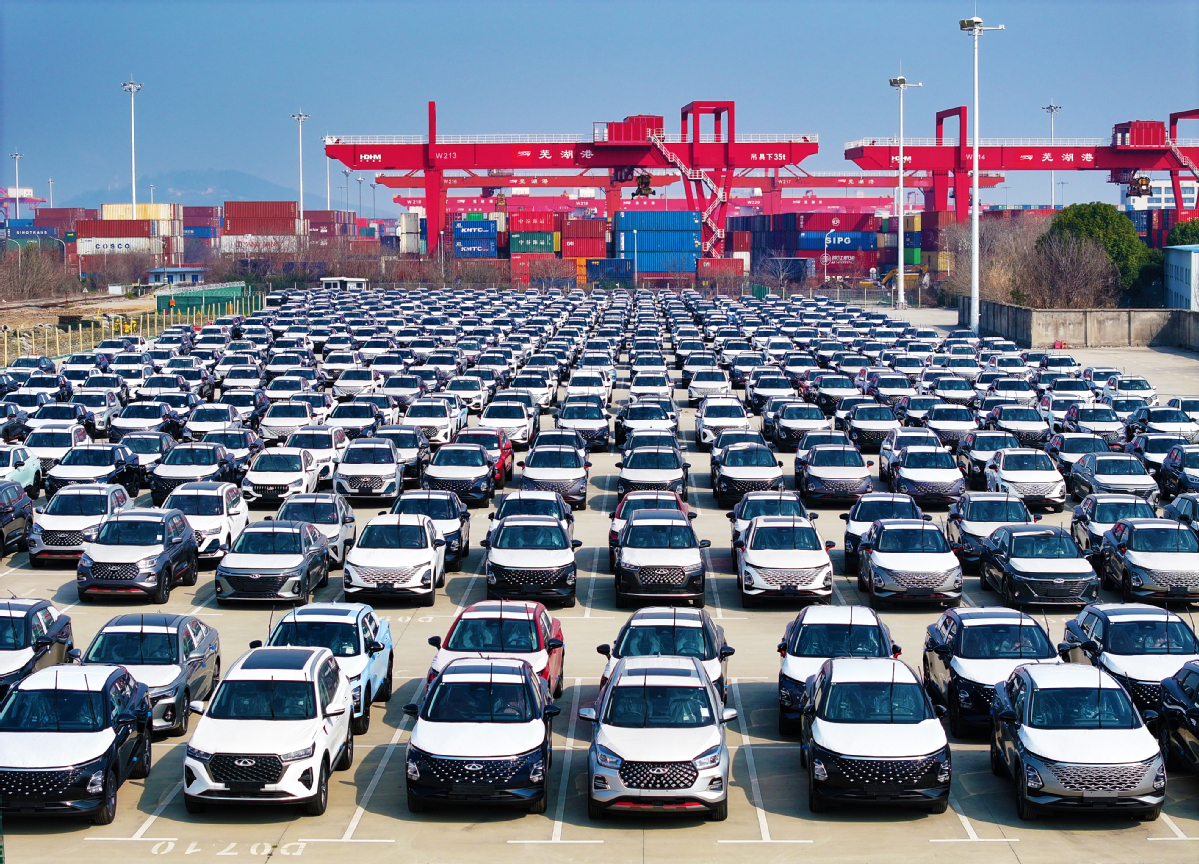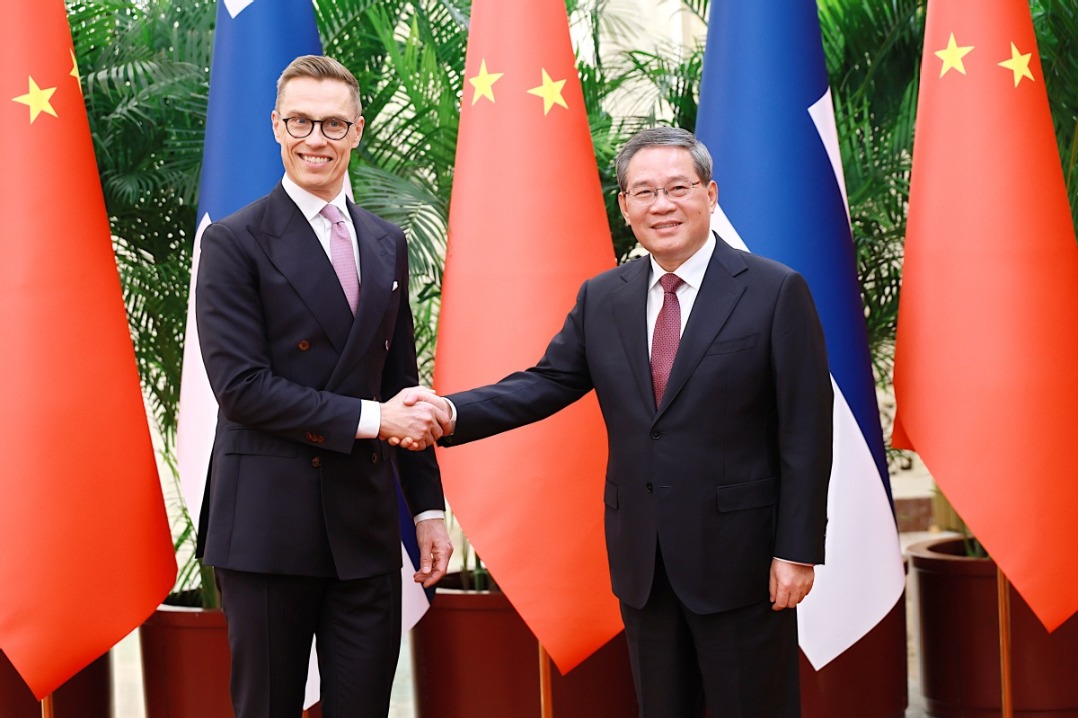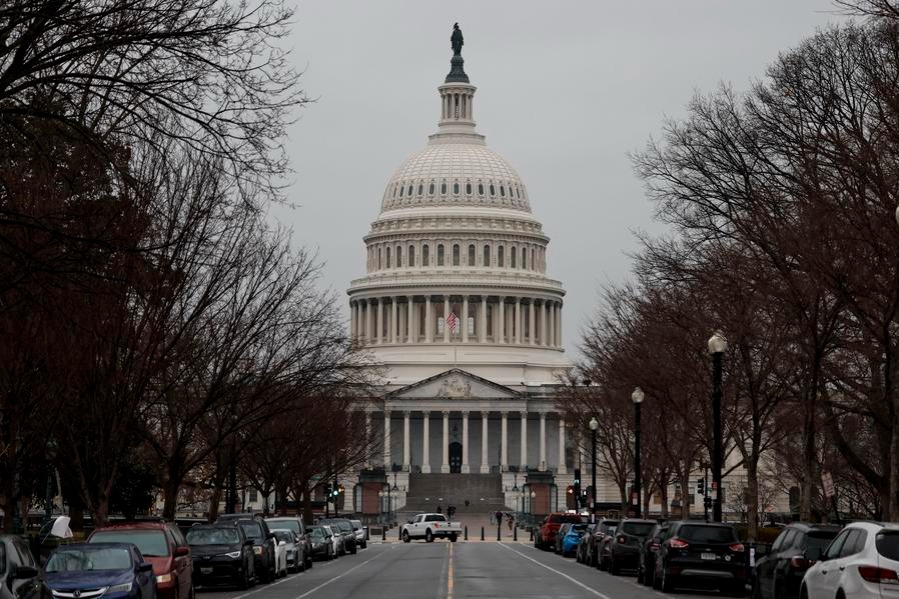Rising trade protectionism in the West disturbing


The European Commission's decision to impose countervailing duties on Chinese-made electric vehicles is the latest protectionist move by Western economies which once championed free trade, but not anymore.
The punitive tariffs, starting on Thursday for a period of five years, are aimed at protecting the European Union's EV industry from Chinese competitors. But the fact that only 10 of the 27 EU member states voted in favor of imposing the tariffs in early October shows how unpopular the move is.
Many economists and trade experts have pointed out that government subsidies are not a major factor for the huge competitive edge China's EV industry enjoys. In fact, US and EU carmakers, from General Motors and Tesla to Volkswagen and Renault, have all benefited from China's EV industry boom.
The economists and experts have also said that shielding EU carmakers from international competition by imposing high tariffs on imports will not make them more competitive or innovative; instead, it could undermine their competitiveness.
The US is much worse than the EU in this regard, as it has decided to impose 100 percent tariffs on Chinese-made EVs, a move that even The Economist magazine decried as "bad policy, worse leadership" in disintegrating the global trade system.
US Commerce Secretary Gina Raimondo led the fearmongering against Chinese-made EVs by alleging they collect data on the driver, and the locations and surroundings they pass through, and thus pose a national security risk. One can make a much stronger case of surveillance against US tech products, which are sold all over the world. After all, the National Security Agency runs the biggest surveillance program in the world and has installed backdoors in many US tech products.
Both the United States and the EU played a critical role in China's globalization process. They did the same for some other developing nations. But what the world has been witnessing over the past years is that the two largest Western economies have increasingly turned protectionist.
The popular perception is that Republicans and Democrats don't see eye-to-eye on anything, except taking a tough stance against China. But that is not entirely true, because they also agree on trade protectionism. The fact that neither party would talk about any new free trade agreement is the best proof they agree on protectionism.
The Joe Biden administration has not revoked former president Donald Trump's tariffs on Chinese products as he once promised, because in the US that is seen as being politically incorrect. He only replaced US punitive tariffs on EU steel and aluminum with a quota system.
Most economists, including former International Monetary Fund chief economist Maurice Obstfeld, in his article last week, agreed that the US tariff wars hurt US consumers, workers and businesses. Europeans, who revere the US as their closest ally, learned a bitter lesson when Trump canceled the talks on the Transatlantic Trade and Investment Partnership after he withdrew the US from the Trans-Pacific Partnership agreement.
Many in the EU had pinned high hopes on Biden but were disappointed with him because he didn't show any interest in reviving the TTIP.The EU cried foul when Biden implemented the Inflation Reduction Act, a law that has been criticized as protectionist even by US allies.
The widely publicized EU-US Trade and Technology Council, launched in 2021, has also been described by EU trade experts as only a talk shop with little substance. With the 2024 US presidential election only days away, much of the talk in the EU is centered on how to prepare for the shocks of more US protectionist measures, regardless of who wins the election.
The EU's competitiveness report by Mario Draghi in September warned against resorting to protectionism to meet the challenges from the US and China. Yet the EU's tariffs on Chinese-made EVs are a major protectionist move, although it will not make the European economic bloc more competitive; instead, it will slow down the bloc's ambitious green transition.
The author is chief of China Daily EU Bureau based in Brussels.
chenweihua@chinadaily.com.cn


































